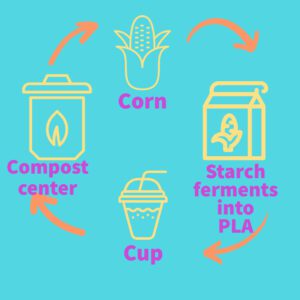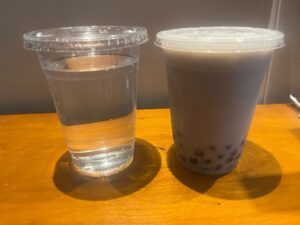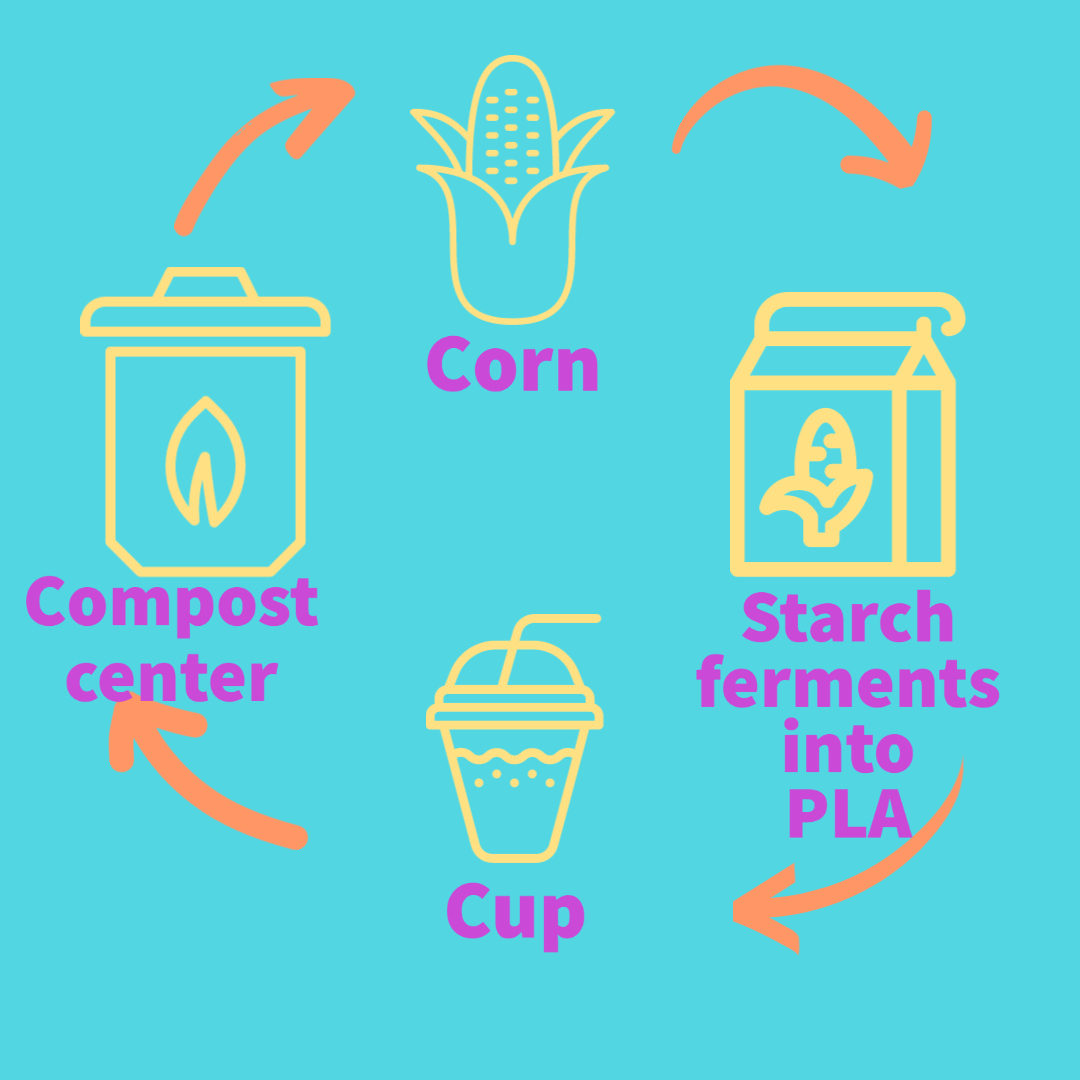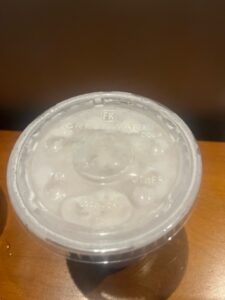Introduction
Lately, I have been going out to restaurants and picking up coffee and tea, which left me with a question regarding the sustainability aspects of the containers that they come in. From places like Starbucks, I’ve noticed that their containers are either all plastic for the cool drinks, or the paper cups for hot drinks. It is important to note that paper cups are not recyclable as they have a small amount of plastic to provide lining which provides a sealant to not leak hot liquids (Why, 2021). Upon getting a boba tea and discussing how much I loved the agave straws that the establishment offered the owner told me about how all of their drink cups and lids are also sustainably made. These cups and lids are 100 percent plant based which led to me wanting to shed light and awareness on this amazing product in hopes that more businesses choose this natural alternative!
What are these containers made of?
These food and drink containers are made based of polylactic acid. This is achieved through placing dextrose through the fermentation process to achieve lactic acid. Dextrose originates from starch, which can be utilized from various crops products like corn. This also can be made more sustainably based on the practices employed at the specific farms where the crops originated. The range for the temperature of items going in the product would be from forty degrees Fahrenheit to one-hundred- and five-degrees Fahrenheit.
How does one dispose of them?
While this product is compostable and a bioplastic, it is not encouraged to actively add them to your at home compost bin. Rather, it should be handled by an industrial or municipal facility (Greenware, N.D.). If you live in Florida and are interested, you might want to check out FORCE Florida to find a local facility near you. If you do not live in Florida I encourage you to look up local composting places that take bio plastics and other materials you may have.
Potential Impacts for the Future
Ideally if bioplastic products like the Fabri- Kal Greenware line become more popularized or normalized we will reduce the production of single use petroleum based plastics. On top of that, if it becomes more popularized ideally there would be less waste as more products were able to be composted and broken down into soil that is rich with nutrients. These products can be created through a combination of agriculture and industry, and I am excited to see what comes next. Look at the comparison photo of a regular plastic cup holding water, versus the Greenware cup holding an oat milk taro boba tea. It’s amazing how it pretty much matches in clarity, you can see the boba pearls so well! If you are a business owner that wants to change up the way that you distribute your to go food and beverages I highly suggest that you look into the Fabra Kai Greenware line and their products.

Conclusion
While I love (and hope that you love too) many of the sustainable options for reusable drink ware and food storage we all know for sanitary reasons we may not always be allowed to use our own containers while out and about. Hopefully, this article was able to highlight potential alternatives for businesses to utilize, and proper disposal for those who come in contact with the products. If these compostable containers become more popular hopefully compost centers become more popularized while less waste is emitted.
Resources
Greenware Cups & Lids: Fabri-kal. FKSFStage. (n.d.). Retrieved February 18, 2023, from https://www.fabri-kal.com/products/Greenware-Cups
Why can’t you Recycle Paper Coffee Cups? Recycle Coach. (2021, August 4). Retrieved February 18, 2023, from https://recyclecoach.com/blog/why-cant-you-recycle-paper-coffee-cups/#:~:text=Unlike%20most%20paper%20items%2C%20paper,and%20turned%20into%20recycled%20paper.


